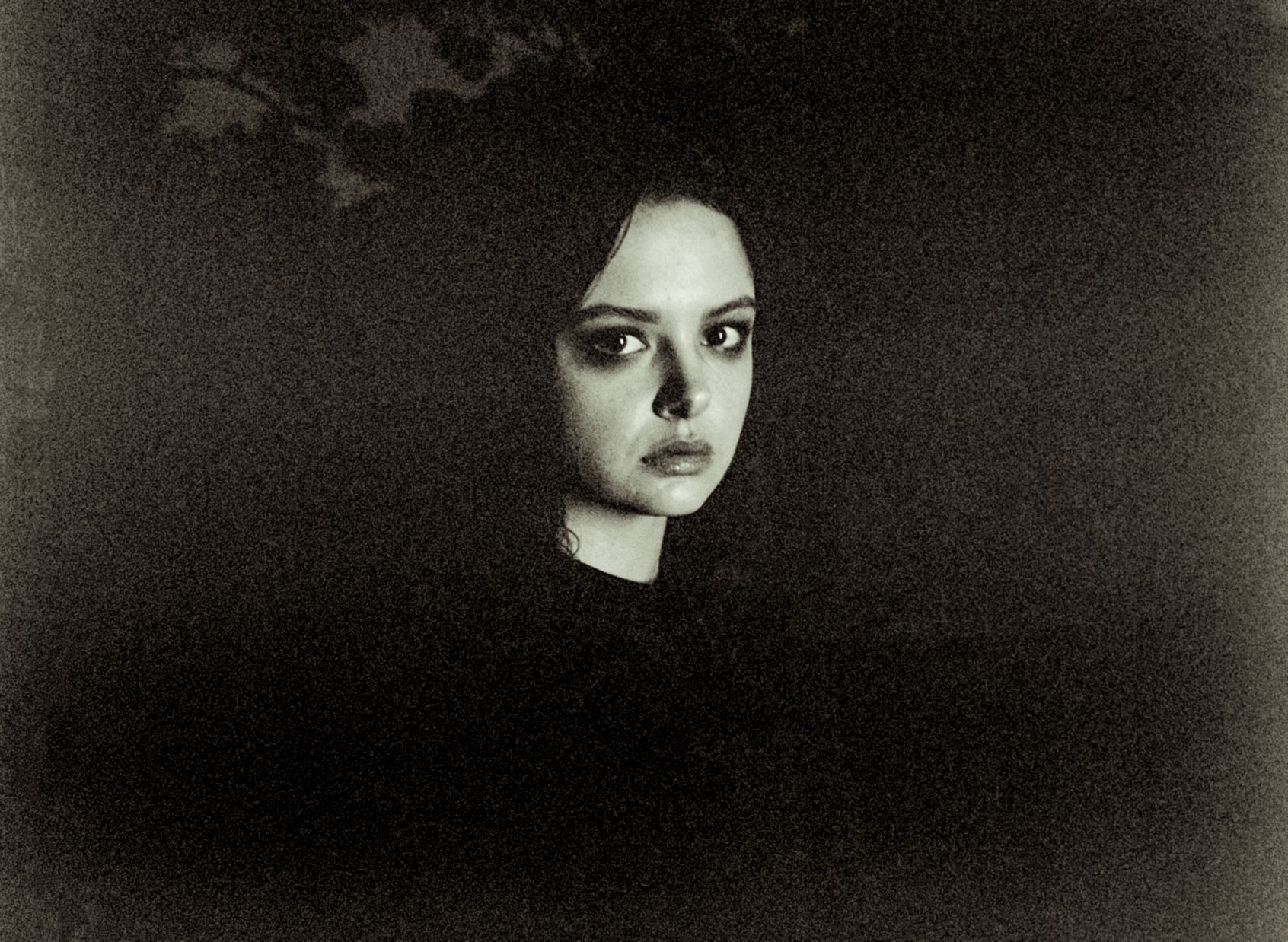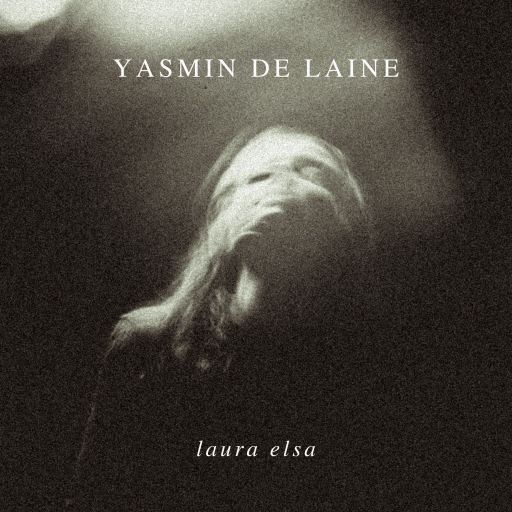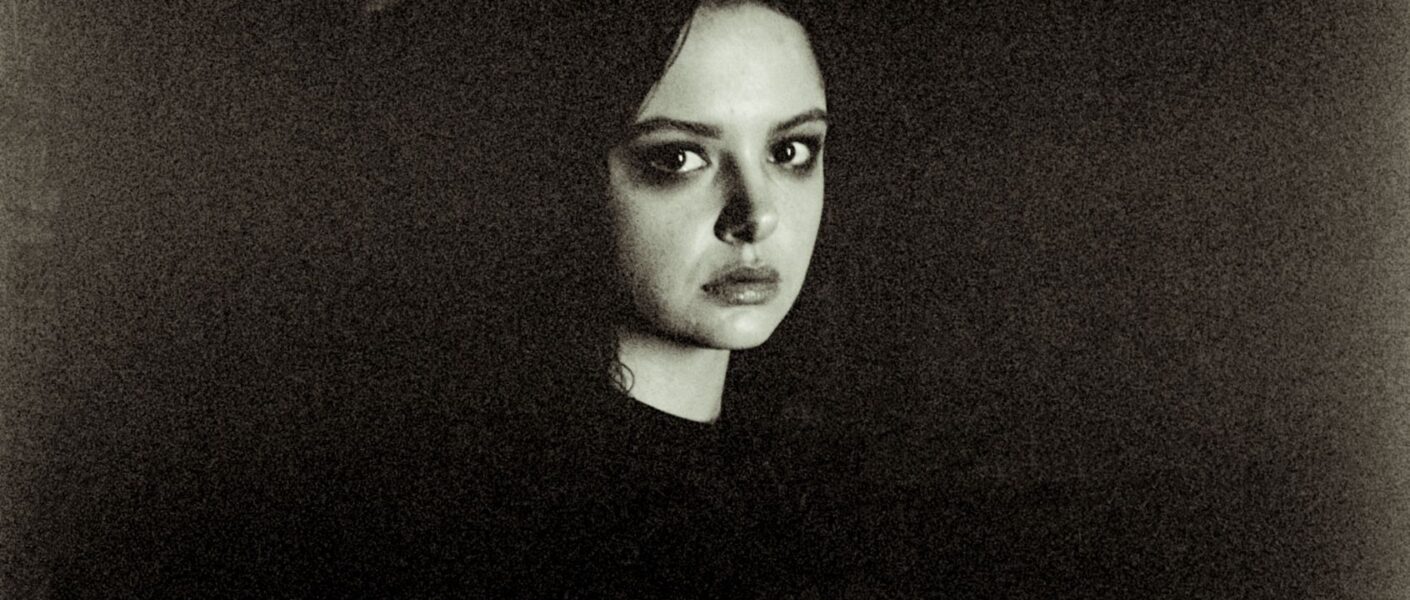Newcomer Yasmin De Laine’s gothic folk release Laura Elsa is a haunting murder ballad crafted from an exploration of female rage, retribution and a true story told to her by her grandmother.
To celebrate her release, Marx Music caught up with Yasmin to discuss the unique pairing of her folk and hardcore background, mirroring the narrative through restrained vocals and her family's investigational prowess.

Marx Music (MM): “Yasmin, congratulations on the release of Laura Elsa, how are you feeling about having the track out in the world?”
Yasmin De Lain: I'm really excited, it's been quite a while now since my last release. I'm pushing a little bit harder this time, because the last thing I put out was over covid lockdowns and people were so fatigued by the state of the music industry. So to be in a better place now and be able to launch it with a proper actual show, it’s really exciting.
MM: Your new track Laura Elsa is of course based on a story that your grandmother told you, could you give me the background on this real story of murder?
Yasmin De Lain: I have always been really into murder ballads. They’re such a foundational part of traditional folk music, but I have always been kind of irked that they’re often about men's violence against women.
I find murder ballads to be really intriguing, I love finding out the stories behind them but there needs to be more female led ones.
I was talking to my grandma about it and she always recalled a story from her youth in the 1950s when she was growing up in rural South Australia. She decided to do some digging to see if she could find more information about it.
So she was telling me about a woman who lived down the road from her, who was from a really violent family and had a really violent husband. He was very cruel towards the children and so one day, this resulted in him being murdered by her and being found in a nine inch grave in between the grape vines of the suburb where they lived.
I think one of the things that I kind of try to keep in mind with these true stories, is that I try to keep it loosely interpreted and make sure there's some kind of connection, like with Laura Elsa, it’s written somewhat from my grandma's perspective.
I don't want to fall into the trap of sensationalising or glamorising something that’s quite horrible. I think there's a very fine line to tread."
MM: Absolutely, but I think that you do it well in that you leave some room for interpretation. How did your grandma manage to gather so much information about this story?
Yasmin De Lain: She recalled it happening in her childhood and essentially just told me this vague story about this woman from just down the road. Then one day when I was visiting, the first thing my grandma did when she saw me was pull out this envelope and was like “Read all of this! It’s all about the case I was telling you about.”
MM: We’re still combating that idea that women are hysterical and clouded by emotions, along with a lot of other negative associations, but in your lyrics and in your delivery, you’re refined and well-articulated that it felt like a sort of reclaiming on female empowerment. Was that your intention?
Yasmin De Lain: Definitely. I think when it came to the delivery of the vocals in particular, it was important to have that measure of restraint because I think it’s really easy to fall into the trap of having this need to deliver it in a way that’s emotional and charged with a sense of urgency. But with this kind of story and the content, it really required a kind of pull back, be a bit more measured. This also mirrors the story, from my research, she would often come across as matter of fact, never overly emotional, just did what she had to do.
It was important to me to subvert that idea of the overly emotional and in the moment response, because I think that in a lot of the writing I have done around women fighting back, it’s been important for me to look into that from a research perspective. I think it’s misunderstood as a topic, so having that restraint was really important.

MM: Instrumentally speaking, the use of the banjo is brilliant and such a great tool for setting the scene of a story like this. Could you walk me through the instrumental development of the song?
Yasmin De Lain: I have been playing banjo properly now for probably about three years, I got stuck into teaching myself this clawhammer style, which comes from that Appalachian, coal miner folk style. In learning that, one of the tunings that I really was drawn to is that of sawmill tuning, which has this really kind of eerie vibe to it.
I started writing quickly and I got this melody that just really stuck in my head and slowly developed overtime and yeah I absolutely love it.
MM: So tell me a bit about yourself, tell me about how you got into your musical journey?
Yasmin De Lain: I have been making music pretty much my entire life. I started teaching myself guitar and vocals back when I was just a little kid and it's pretty much been my main hobby forever.
MM: To be self-taught is wildly impressive!
Yasmin De Lain: I grew up listening more to the heavier style stuff, like I was writing things that were more hardcore and punk, but I really appreciated how you could convey a similar sentiment with folk music. Over the years, I was in various bands, one of them was called Casell which started as a solo project, but eventually became a band. That was kind of more of an indie folk style but also a little bit alt rock. I’ve always really found value in having a solo project and over the years that kind of built up to what it is now; constantly developing and honing the sound that I have ended up with.
MM: You definitely bring something different to the genre, you don’t conform to the archetypal folk aesthetic, you’ve kind of nailed the intrigue or a few pools of fans I would say?
Yasmin De Lain: With my background, which was more metal and hardcore genres, it’s really lent an interesting bent to my folk music, in that it’s not entirely what you’d expect both aesthetically and musically. I think that is something that does lend a point of difference as well because although I do enjoy a lot about traditional folk, I am also very much an emo kid, a goth at heart, so that is always going to weave its way through any kind of creative output I have.
MM: What is the key takeaway that you want people to leave with, after listening to Laura Elsa?
Yasmin De Lain: I guess it's really an introduction to my personal style and it really encapsulates what I’m about, in terms of incorporating banjo in a way that’s really unexpected for a lot of people and really quite gothic and eerie sounding. It’s an understanding of the instrument, folk music and murder ballads.
I hope I can provide some new addition to the cannon and create something that offers something new to the genre.


